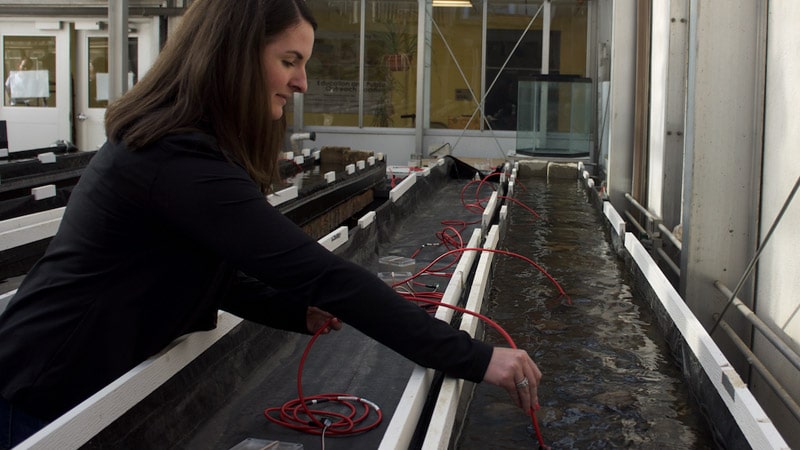Open-Source Electronic Hardware for Water Research and Real-Time Online Water Monitoring

- This event has passed.
Open-Source Electronic Hardware for Water Research and Real-Time Online Water Monitoring
November 9, 2020 , 12:00 PM – 3:00 PM EST

When: Monday, November 9, 2020, 12 to 3 p.m. EST
Where: Online via Zoom
Cost: $400-550, includes a Mayfly Data Logger. Participants must register to attend this workship; see prerequisites below.
Registration closes at 5 p.m. on September 30.
Presented by Consortium for the Advancement of Hydrological Science, Inc. and Stroud Water Research Center
Low-cost, do-it-yourself electronic microcontrollers are revolutionizing hydrologic research by enabling scientists to customize measurement systems and utilize real-time data portals. Along with the possibilities for customized wireless communication and prototype construction, scientists are gaining an unlimited capacity for designing customized hydrologic measurement equipment.
This workshop will instruct participants on how to program their own Mayfly Data Logger (provided as part of the workshop fee) with open-source code that has been created for use with a number of off-the-shelf water sensors (not provided). Supported sensors can be found here.
Instructors: Shannon Hicks, Sara Damiano, and Rachel Johnson
Facilitator/Organizer: Scott Ensign
Topics Covered
- This workshop will provide an introduction to open-source environmental monitoring and measurement with a focus on water. Participants will be exposed to all aspects of Stroud™ Water Research Center’s EnviroDIY project, including Mayfly Data Logger programming, writing Arduino code for off-the-shelf commercial sensors, and using a free data portal (Monitor My Watershed®) for real-time data upload and visualization.
- The workshop will provide a hands-on introduction to editing code within the Arduino Interactive Development Environment that is appropriate for beginners. Building on this introduction, the workshop will teach participants how to copy-paste-edit code to run their own wifi-connected water monitoring device during the course of the workshop. Instruction will include how to use online resources after the workshop to learning how to convert this benchtop measuring device into a field-ready monitoring station.
- The workshop will use data loggers (that are programmed by the user) to connect with off-the-shelf sensors (that measure an environmental attribute). The course will not provide instruction on building sensors.
- The workshop will provide instruction on integrating data collection and management with CUAHSI’s HydroShare data portal.
Learning Objectives
- To gain skills for editing Arduino code to control the Mayfly Data Logger and environmental sensors
- To learn how to troubleshoot data logger deployments
- To practice validating sensor data and QA/QC procedures.
- To practice using web-based data management and logging tools, including MonitorMyWatershed.org and www.hydroshare.org.
- NOTE: This workshop will not provide instructions on making your own environmental sensors; we rely on commercially-available sensors for demonstration.
Prerequisites
- Installation of Arduino IDE on a computer.
- Follow the step-by-step instructions in section 4.1 and 4.2 of this guide.
- Sign up for access to MonitorMyWatershed.org and know your username and password.
- Register for access to EnviroDIY.org and know your username and password.
- Register for HydroShare and create a user profile.
- 2.4 gHz WiFi with internet access.
- Familiarity with Microsoft Excel.
Details
- Date:
- November 9, 2020
- Time:
-
12:00 PM – 3:00 PM EST
- Event Category:
- Virtual Workshop
- Event Tags:
- EnviroDIY, Monitor My Watershed, Sensors
Organizer
- Scott Ensign, Ph.D.
- ensign@stroudcenter.org
